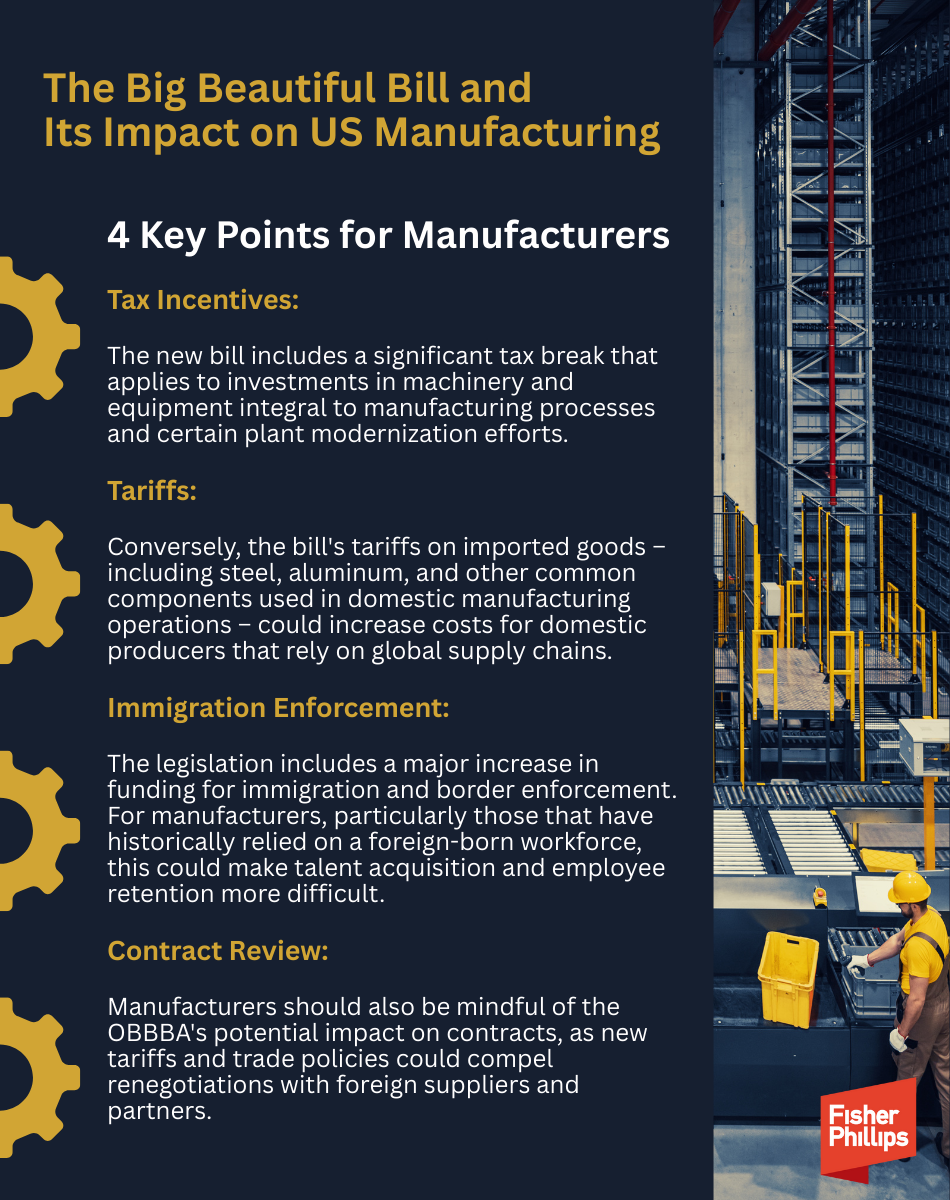Welcome to this edition of the FP Manufacturing Snapshot, where we take a quick look at a recent significant workplace law development with an emphasis on how it impacts employers in the manufacturing sector. This edition is devoted to the "One Big Beautiful Bill Act" (OBBBA) – and its projected impact on manufacturers. Read on to find out what you need to do as a result of this legislation.
Snapshot Look at “The Big Beautiful Bill”
The OBBBA, which President Trump signed into law on July 4, is a comprehensive federal statute that will reshape key areas across the economy. The OBBBA includes tax code changes designed to encourage investment in US facilities and equipment. It also introduced significant changes to border and immigration enforcement, which is expected to have a major impact on the labor market.
This Snapshot will focus on the aspects most relevant to manufacturing industry employers, but for a deeper dive, you can read our full Insight here. The OBBBA's most direct impact on manufacturing involves tariffs and tax incentives aimed at "reshoring" production, which we’ll discuss in more detail below.
4 Key Points for Manufacturers
1. Tax Incentives: The new bill includes a significant tax break that applies to investments in machinery and equipment integral to manufacturing processes and certain plant modernization efforts. Manufacturers who are planning to expand their domestic footprint or upgrade their lines in the next few years should review these provisions carefully, as they could dramatically reduce the after-tax cost of these capital expenditures.
2. Tariffs: Conversely, the bill's tariffs on imported goods – including steel, aluminum, and other common components used in domestic manufacturing operations – could increase costs for domestic producers that rely on global supply chains. Manufacturers should review sourcing strategies and be prepared for potential price volatility.
3. Immigration Enforcement: The legislation includes a major increase in funding for immigration and border enforcement. For manufacturers, particularly those that have historically relied on a foreign-born workforce, this could make talent acquisition and employee retention more difficult. It may also prompt a review of internal compliance standards, as well as employee handbooks and policies, to ensure everything is up to date and staff is following appropriate procedures.
4. Contract Review: Manufacturers should also be mindful of the OBBBA's potential impact on contracts, as new tariffs and trade policies could compel renegotiations with foreign suppliers and partners.
Conclusion
Manufacturers should understand the full scope of the OBBBA's changes and consult with legal counsel to ensure you are prepared. We will continue monitoring workplace law developments as they apply to the OBBBA, so make sure you are subscribed to Fisher Phillips’ Insight System to have the most up-to-date information sent directly to your inbox. If you have questions, contact your Fisher Phillips attorney, the author of this Insight, or any attorney on our Manufacturing Industry Team.




